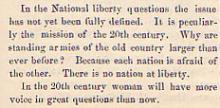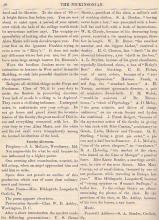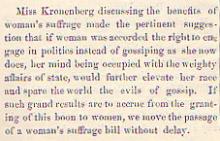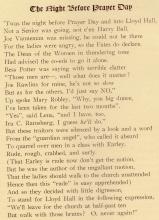The Twentieth Century Will Give Women a Greater Voice
The activities and speeches during the 1888 Commencement week at Dickinson College were recording in the 1888 July issue of the Dickinsonian. On Thursday of that week, there was a speech given on "Some Questions for the Twentieth Century." Among these questions, the speaker comments briefly on women in the future. He states that in the Twentieth Century "woman will have more voice in great questions than now."








